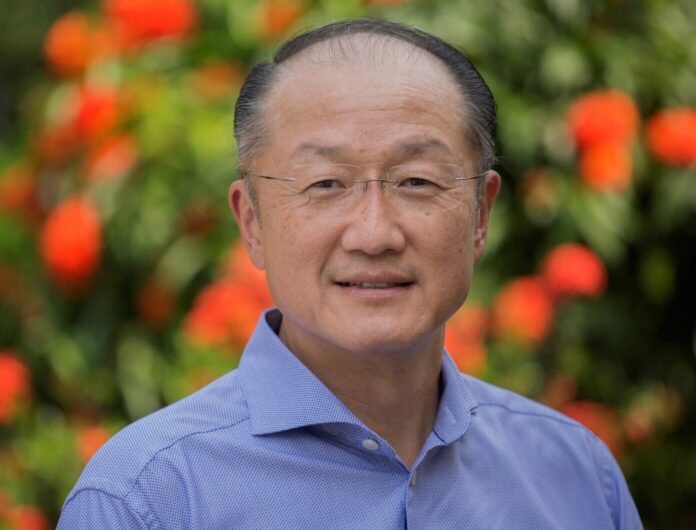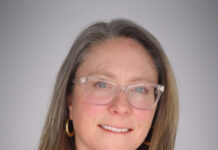
Dr. Jim Yong Kim — a former World Bank president, and current educator and global health leader — will soon return to Muscatine for an event focusing on the state of mental health in the nation. The Community Conservation on Mental Health is set for 7 p.m. Thursday, Oct. 10, in the Muscatine High School […]
Want to Read More?
Get immediate, unlimited access to all subscriber content and much more.
Learn more in our subscriber FAQ.
- Unparalleled business coverage of the Iowa City / Cedar Rapids corridor.
- Immediate access to subscriber-only content on our website.
- 26 issues per year delivered digitally, in print or both.
- Support locally owned and operated journalism.
Do you want to read and share this article without a paywall?
Click here to purchase a paywall bypass linkDr. Jim Yong Kim — a former World Bank president, and current educator and global health leader — will soon return to Muscatine for an event focusing on the state of mental health in the nation.
The Community Conservation on Mental Health is set for 7 p.m. Thursday, Oct. 10, in the Muscatine High School Auditorium. The event has free admission and is open to the public.
Dr. Kim, an expert on global health and mental well being, will be the keynote speaker for the community event, sponsored by Muscatine-based KENT Corp.
A former resident and 1978 Muscatine High School graduate, Dr. Kim also will be at a meet-and-greet at 7 p.m. Friday, Oct. 11, at the Community Foundation of Greater Muscatine, 215 W. Mississippi Drive. That event also is open to the public.
Dr. Kim has served in strategic national and global life-enhancing roles, including director of the World Health Organization (2003-2006), president of Dartmouth College (2009-2012), president of the World Bank (2012-2019), and vice-chairman of Global Infrastructure Partners (2019-present).
The sought-after speaker and contributor has presented to the world’s most powerful leaders as well as at prestigious global health, economic, and student forums.
During a recent interview with the QCBJ, via Zoom, Dr. Kim discussed several topics ranging from his memories of Muscatine to world affairs. These questions and answers are based on that interview.
How did your years in Muscatine and Iowa help prepare you for your career?
Dr. Kim said part of his preparations for his career were shaped by getting a great education in the state. He said Iowa has one of the great public school systems in the U.S.
In Muscatine, some of his education came from playing sports at the most competitive levels in the state. “I played football, basketball and golf. … I was able to compete in the highest levels in Iowa.”
“The competition we had, the frustrations … really shaped my sense of what it takes” to accomplish big goals and take on big tasks, he said.
During his senior year, the Muscatine football team was in the midst of a multi-year losing streak. He said that streak was perhaps the longest in the nation at the time — a streak of more than 40 games in a row. “In my senior year, we kept that record spotless. I remember what that felt like.”
“It made me feel the kind of energy and intensity that it takes to win big battles,” he added.
What are some of your best memories of Muscatine and Iowa?
Dr. Kim’s memories center on his group of friends and the adventures of that group. For instance, in the summer before his senior year in high school, that group went on the RAGBRAI bicycle ride across Iowa. “That was an amazing experience, going across the State of Iowa,” he recalled.
Some of his other best memories center on sports including his love of golf, which began in those Muscatine days.
A not-so-fond memory also centers on sports. He remembers going to basketball practice every morning at 7 a.m. during his junior high school years. “That was not fun in Iowa winters. … But sports was a constant throughout the year,” Dr. Kim added. “The small group of friends I had in high school, we were very close.”
What is your advice for young people who are starting their careers?
Dr. Kim said we live in a world of change. Today’s jobs could be eliminated in the future and new jobs will be created. “The job market is changing very rapidly,” he added.
However, there are some skills that will help young people get set for the changing times, such as learning at least the basics of computer science, learning how finances work and learning new languages.
Learning a new language can help people because it will help them get a new view of the world, he said.
“But by far the most important thing is, you have to train yourself to be a lifelong learner … The most important skill to have is to tackle things and learn new things,” he said.
Dr. Kim added that his own changing and evolving career path has shown him the need to be a lifelong learner and get new skill sets. For instance, when he took the job at the World Bank, he had to learn skills in economics, finances and infrastructure.
Are you hopeful that the World Bank’s goal of ending extreme poverty by 2030 will be achieved?
“Unfortunately, it won’t be (achieved by 2030) … and it’s because of COVID,” he said.
The pandemic has put more than 100 million people around the world back, or deeper, into poverty. It has set back economic growth for many developing countries, Dr. Kim added.
In fact, a recent World Bank report stated that in 2022, around 712 million people were living in extreme poverty, or on less than $2.15 per day — the poverty line for low-income countries.
“With our current pace of progress, almost 600 million people — around 7% of the world’s population — will still be living in extreme poverty by 2030, most of them in Sub-Saharan Africa or fragile and conflict-affected places. At this rate, it could take over three decades to eradicate extreme poverty,” according to the World Bank.
Considering the many problems in the world today, what worries you the most?
Dr. Kim said that political and social moves in recent years have changed from a more global perspective to a more “inward” focus, and that has been worrisome. “The move toward being more inward looking is painful to see,” he added.
Sometimes, that inward focus can lead to xenophobic views and racism, he added. But Dr. Kim said that he understands some of that inward-looking is because it is based on the tough financial times many Americans are facing. During the last election cycle, he learned that many people in the U.S. are living paycheck to paycheck. In fact, almost half of Americans don’t have enough money to write a $400 check, he said.
However, sometimes that inward-looking can turn into resentment toward other people.
In his career, Dr. Kim said that he has worked with people from around 200 nations. That experience has shown him the “commonality of the human spirit.”




